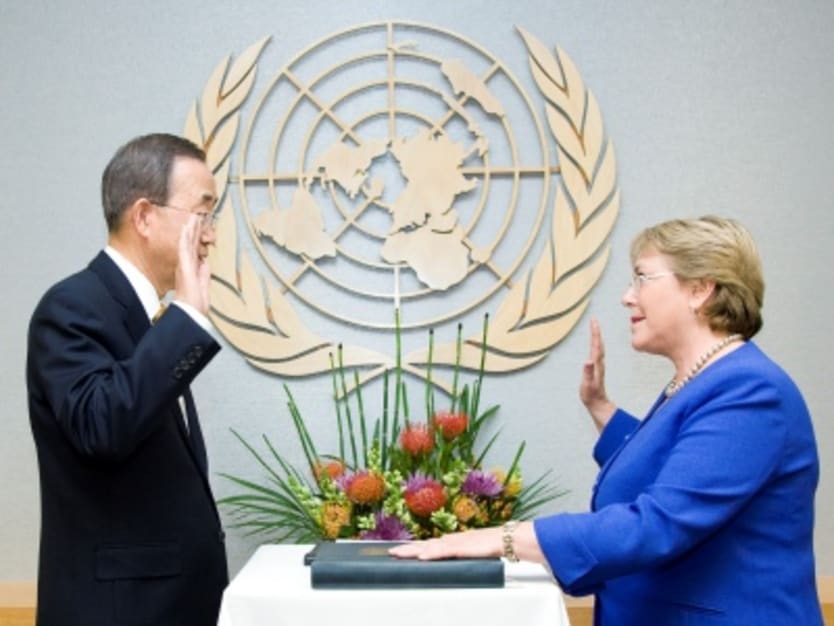
Michelle Bachelet has been on the job as the new head of the United Nations composite gender entity, U.N. Women, for less than a week. But, already, some things have been made abundantly clear to the former president of Chile, who used to hold an 80 percent approval rating in her leadership position.
>> It’s Official: Michelle Bachelet is Chief of UN Women
>> UN Establishes New Gender Entity
“Women are almost invisible in some places,” Bachelet said during a press briefing at the U.N. headquarters Sept. 21. “They are second-class citizens. They are seen as people without rights. It is a shame for humanity.”
Bachelet said she is now working out how U.N. Women, which will officially commence operations on Jan. 1, 2011, can best tackle the problems of gender-based violence, climate change, pay inequality, education, political participation and health that affect girls and women globally.
It’s a huge goal that, Bachelet recognized, will take some time to reach – not in the next four or five years.
U.N. Women, with a starting annual budget of USD500 million that is estimated to increase to USD1 billion within the next five years, will merge the United Nations Development Fund for Women, the Office of the Special Adviser on Gender Issues and Advancement of Women, the Division for the Advancement of Women, and the International Research and Training Institute for the Advancement of Women.
In Bachelet’s first moments as leader of the much-anticipated agency, she appeared confident and at ease but also “very realistic” and “completely aware of the challenges for U.N. Women,” she said.
She touched on the issue of impunity against U.N. peacekeepers who commit rape and sexual assault as well as the recent incident in the Democratic Republic of Congo, where more than 500 women were gang-raped by rebel groups within miles of a U.N. peacekeeper base.
But U.N. Women’s agenda will be broader than gender-based violence, expanding to health and employment disparities, which Bachelet labelled as one of the biggest problems in the world today.
U.N. Women will help assuage traditional problems of inadequate funding for and fragmentation of women’s issues, Bachelet said. She explained that civil society organizations will have a crucial role in the organization’s implementation, but she declined to specify how that would materialize.
The next few months will focus on hammering out the minutiae of U.N. Women’s strategy and developing its programming to ensure the strongest possible impact.
“It sends a huge signal to countries that women are at the center of the agenda,” Bachelet said. “We are not anywhere near where we need to be, and if we stay on the track we are on, we will not meet the goals.”








